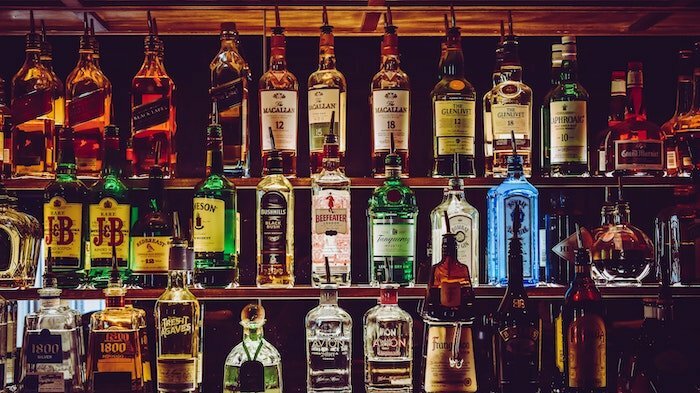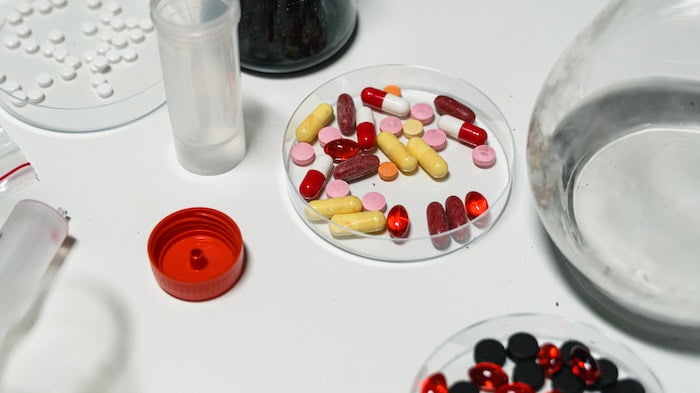Repairing Liver Damage from Alcohol Use
The Effects of Alcohol Consumption
It’s no secret that alcohol consumption, especially when consumed frequently and in sessions of heavy drinking or ‘binge drinking’, is harmful to our bodies.
When someone consumes alcohol regularly, they will experience a range of effects on their physical and mental health which can lead to dangerous health complications.
Mentally, people who consume alcohol may feel that they have less energy and may even suffer from brain fog. Depending on how much they drink, their cognitive function will suffer, making it increasingly difficult to focus, remember, and more.
They may even develop anxiety or depression due to their consumption habits. This can have a profound effect on productivity, habits, and the general quality of someone’s life.
Physically, people who drink alcohol may suffer from dehydration, weight gain, malnutrition, bloating, skin wrinkling, bloodshot eyes, and much more.
If someone is addicted to alcohol, they may even experience withdrawal symptoms such as nausea, headaches, vomiting, and much more.
However, one of the organs which is mostly affected by alcohol consumption is the liver. While the previously mentioned symptoms of alcohol consumption are reversible, much of the damage that the liver takes from alcohol can be irreversible.
The liver is an incredibly important organ in our body, and we cannot survive without it.
After consuming alcohol frequently and heavily, subjects may develop short-term and long-term liver damage in the form of alcohol-related liver disease, liver failure, fatty liver disease, liver cirrhosis and scarring, alcoholic hepatitis, and more.
Alcohol & Its Detrimental Effect on the Liver

The liver is the largest organ inside our body, and if it fails to function optimally, we would not be able to digest food, filter toxins, produce proteins for blood clots, store energy or regulate chemical levels in our blood, and it produces bile in order to remove substances which are considered to be waste in our body.
In other words, the liver is so important that without it, we would simply die.
The liver can help us metabolise substances such as drugs or alcohol which are highly toxic by breaking down and filtering blood which comes from the digestive tract.
This is how we are able to consume so much alcohol without immediately suffering from its negative health effects.
The liver minimises the effect of alcohol on the body, and it helps us regulate our blood sugar levels as well as helping us regulate our immune system. This helps prevent us from being exposed to a range of infections and diseases.
So, if the liver is compromised, so is our immune system.
However, after consuming alcohol long enough and in high quantities, we will experience a range of health consequences, particularly on the liver. Although the liver can help us by breaking down alcohol, the liver’s cells are damaged significantly each time it processes alcohol.
Repairing Liver Damage From Alcohol Use: Is it Possible?
It depends. The liver is a very resilient organ in our body. It has the ability to regenerate cells by itself which have died due to toxic chemicals such as drugs and alcohol.
So, some forms of liver damage can be reversed.
However, if a subject is suffering from extreme liver damage, for example, Alcohol-Related Liver Disease (ARLD), they may not be able to reverse many of its symptoms.
Conditions such as this one can not only lead to cirrhosis, also known as scarring of the liver, but it can lead to death. Additionally, many people may need to undergo a liver transplant if their liver has been compromised enough due to alcohol consumption.
How Can I Reverse & Repair Liver Damage from Alcohol Use?

Once again, it depends on the conditions that a subject has developed due to their alcohol consumption habits, as well as other lifestyle habits.
While one person’s liver may repair itself from damage due to alcohol use after a month, another’s may require over a year of abstinence in order to return to normal.
Some forms of alcohol-related liver damage may be reversible, for example, Alcohol Fatty Liver Disease, whereas other conditions may not be reversible, such as cirrhosis or liver scarring.
The most effective way to reverse or minimise the damage due to alcohol consumption on the liver is to simply abstain from alcohol. Abstaining will allow your liver to regenerate many of its damaged cells, and as long as there is no permanent damage, it can return to a state of optimal health.
It is thought that after abstaining from alcohol for around 30 days, the subject’s liver will have regenerated and repaired itself almost fully if they are not already suffering from anything as severe as Liver Cirrhosis or Alcoholic Hepatitis.
Of course, it depends on whether the subject has already developed an illness which has lasting or more severe effects. While abstaining from alcohol is always highly encouraged, it may not be entirely enough to return to optimal health.
The treatment for liver infection or Alcoholic Hepatitis may not entirely be the same as treating alcohol related liver disease.
While abstaining from alcohol will always be the answer to prevent further damage, some subjects will require medical treatment at a hospital or at a drug and alcohol rehab in order to optimise their health or overcome their alcohol addiction.
What Types of Liver Illnesses Does Alcohol Cause?
There is not just one form of illness that the liver may suffer from due to alcohol use. There are many forms of illnesses, with some being progressive and leading to others which may even be irreversible.
Some of the most profound forms of alcohol-related liver illnesses are:
- Alcohol-Related Liver Disease (ARLD)
- Alcoholic Fatty Liver Disease
- Alcoholic Hepatitis (Inflammation of the Liver)
- Alcohol-Related Liver Cirrhosis (Scars of Cirrhosis)
There are more forms of health complications and symptoms which can arise due to these alcohol-related illnesses. Symptoms are wide-ranging and can have a profound effect on the quality of life someone has.
Below are the most profound forms of alcohol-related liver illnesses:
1. Alcohol-Related Liver Disease
Alcohol-Related Liver Diseaseor ARLD is when high and frequent quantities of alcohol consumption have caused significant liver damage.
The damage is typically accumulated over a number of years, and symptoms may not be immediate.
While it is typically people who indulge in heavy drinking who develop Alcohol-Related Liver Disease, it is also possible for those who only indulge in moderate drinking, not only excessive, to develop this form of illness.
Symptoms of Alcohol-Related Liver Disease include but aren’t limited to:
- Jaundice: Jaundice is when your skin and eyes turn yellow. This is due to an elevated level of bile secreted by the liver. Bile is produced when the liver filters alcohol.
- Liver cancer: Alcohol is a carcinogen, and not only will your chances of developing cancer increase dramatically if you consume alcohol regularly, but the liver is also very susceptible to developing a primary or secondary cancer.
- Kidney failure: This is when your kidney is unable to filter waste and toxins in your blood.
- Cognitive Impairment: Subjects may experience cognitive impairments such as encephalopathy or brain fog due to a build-up of toxins in the brain.
- Stomach swelling and internal bleeding: Veins in the stomach may enlarge and even break open, causing internal bleeding. These people may begin vomiting or excreting blood in their stool.
- Infection susceptibility: People whose livers are compromised are more exposed to infections.
- Weight loss and malnutrition: Subjects may lose their appetite, and they may also become nutrient deficient.
- Sickness
Can I Repair Liver Damage from Alcohol-Related Liver Disease?
There are many different stages of Alcohol-Related Liver Disease. Because it simply refers to the liver damage that has occurred due to high levels or even moderate levels of alcohol consumption, the scale of severity is wide-ranging.
It encompasses many other forms of alcohol related liver damage.
It is possible that subjects can repair liver damage from Alcohol-Related Liver Disease. However, this is only possible if they are suffering from some of the early stages of the condition. For example, if they are suffering from Alcohol Fatty Liver Disease, which is one of the earliest stages of Alcohol-Related Liver Disease
2. Alcoholic Fatty Liver Disease

Alcoholic Fatty Liver Disease, often referred to as Alcoholic Steatohepatitis, is the earliest stage of Alcohol-Related Liver Disease.
Because it is the earliest stage, it is the most common form of Alcohol Related Liver Disease among the population. Due to heavy alcohol consumption, the consumer’s liver will experience a build up of fat. Subjects who experience Alcoholic Fatty Liver Disease may feel tired or discomfort in their abdomen section.
While its purpose is to break down substances in order to protect the body, breaking down alcohol can produce harmful substances that damage liver cells, increase inflammation, and more.
Alcoholic Fatty Liver Disease can lead to more harmful stages of liver damage such as Alcoholic Hepatitis or Liver Cirrhosis.
Can I Repair Liver Damage from Alcoholic Fatty Liver Disease?
Fortunately, the effects of Alcoholic Fatty Liver Disease can be reversed.
While some people may not experience the symptoms associated with the disease, it can still cause plenty of health complications and progressively lead to irreversible liver damage.
If you abstain from alcohol, you will be able to repair your fatty liver damage from frequent episodes of heavy drinking. After a few months to a year of abstinence, the subject’s liver should return to normal unless other factors are contributing towards Fatty Liver Disease.
In addition to abstaining from alcohol, subjects can also aim to lose weight if they are already overweight in an attempt to undo some of the damage. Losing weight can reduce the amount of fat which is in the liver, and it will obviously come with other physical and mental health benefits.
Additionally, people can undertake other healthier habits, such as quitting smoking (which studies show to be heavily associated with Alcoholic Fatty Liver Disease) and avoiding foods and activities which increase blood pressure and cholesterol in order to make themselves less susceptible to developing Alcoholic Fatty Liver Disease.
It is also possible to develop a form of Non-Alcoholic Fatty Liver Disease. This is typically experienced by those who are suffering from obesity.
Obesity, along with heavy alcohol consumption, can exacerbate symptoms of Fatty Liver Disease and make the progression into Alcoholic Hepatitis and Cirrhosis more sudden.
Since AlcoholicFatty Liver Disease can lead to Liver Cirrhosis, it is important that subjects abstain or minimise their alcohol consumption to prevent it from progressing further. Then, this will allow their liver the chance to heal and reverse some of the damage that has been made.
3. Alcoholic Hepatitis
If someone is diagnosed with Alcoholic Hepatitis, it means that they are suffering from inflammation of the liver. Alcoholic Hepatitis can be a serious and life-threatening condition, and it has already claimed many of the lives of people who were unable to manage their excessive alcohol consumption.
What is more frightening about Alcoholic Hepatitis is that it is not exclusive to heavy drinkers. Even moderate drinkers of alcohol have been seen to suffer from Alcoholic Hepatitis.
Some of its symptoms include kidney and liver failure, cognitive impairment, weakness, fever, abdominal pain, vomiting, nausea, and of course, it can lead to death.
When the liver is healthy, it will break down harmful chemicals filtering through the body. However, since the liver is inflamed and still bears the same responsibilities of breaking down harmful chemicals, subjects will begin to suffer from Hepatic Encephalopathy.
Symptoms of Hepatic Encephalopathy include fatigue, anxiety, brain fog, anger, irritability, depression, memorisation struggles, and more.
Furthermore, Alcoholic Hepatitis can lead to more health complications, especially in organs such as the kidneys.
Blood flow will be restricted through the liver due to the scarring which is taking place, which can lead to Renal Vascular Disease, which can cause health complications such as high blood pressure and even kidney failure.
Alcohol is capable of suppressing appetite as well as interfering with the absorption of valuable nutrients in the body. This means that in addition to Alcoholic Hepatitis, subjects may suffer from malnutrition, putting themselves at higher risk of consequences related to Alcoholic Hepatitis.
Some of these symptoms may not immediately be identified or associated with excessive alcohol consumption. This means that many subjects suffering from Alcoholic Hepatitis do not realise why they’re experiencing these symptoms, and therefore they do not do anything to modify their drinking habits.
Can I Repair Liver Damage from Alcoholic Hepatitis?

In order to repair liver damage from alcohol use when suffering from Alcoholic Hepatitis, subjects will need to abstain from alcoholic substances entirely.
This will allow the level of inflammation to decrease, as well as liver scarring, and their liver will begin to heal.
However, if too much damage has taken place as a result of excessive alcohol consumption and Alcoholic Hepatitis, patients can undergo treatment in order to slow down progressive damage and treat symptoms.
Subjects can gain access to treatment via hospitals or a drug and alcohol rehab which specialises in addiction treatment.
At the hospital or alcohol rehab, medication will be prescribed in order to treat liver inflammation including Corticosteroids and Pentoxifylline. Corticosteroids are a form of anti-inflammatory medication, and Pentoxifylline is prescribed in order to improve blood flow and reduce muscle pain.
Similar to Alcohol Fatty Liver Disease, being significantly overweight and obese may be a contributing risk factor.
Subjects should consider consuming a healthier diet in moderate quantities, in addition to abstaining from alcohol, in order to reach a healthy weight and minimise the risks of developing Alcoholic Hepatitis.
4. Alcohol-Related Liver Cirrhosis
When we consume alcohol and the liver inevitably breaks down the alcohol in our system, the level of inflammation in our body increases.
This inflammation can cause or exacerbate skin problems such as rosacea, eczema, psoriasis, inflammation of the brain, and of course inflammation of the liver.
After repeatedly consuming alcohol and therefore inflaming the liver, the liver’s cells will die and even scar. When the liver suffers from scarring, this is called Liver Cirrhosis.
Studies show that almost 50% of deaths due to alcohol-related conditions are due to Liver Cirrhosis.
Whereas Alcoholic Related Fatty Liver Disease may be the early stage of Alcohol-Related Liver Disease, Alcohol-Related Liver Cirrhosis is the most advanced stage. Because it occurs during the later stages of Alcohol-Related Liver Disease, it happens after a long time period of frequent and heavy consumption.
If the liver is scarred, then it would suggest that the liver has not been functioning optimally for a long time, and instead it has been under frequent states of inflammation.
Some of the symptoms of Alcohol-Related Liver Cirrhosis may manifest through:
- Muscle atrophy: Reduction in nutritional intake can lead to significant muscle loss among subjects suffering from cirrhosis. In fact, it is estimated that around 40% of patients suffering from Liver Cirrhosis lose a significant amount of muscle mass due to muscle atrophy. This can impact survival rates among patients significantly.
- Scarring and damage to liver health.
- Jaundice.
- Coagulopathy and frequent bruising: The blood is unable to form clots as effectively. This can cause excessive bleeding if the subject is injured.
- Ascites: Fluid will build up in the abdomen which may then cause lung and kidney issues, among other organs.
- Erythema: A skin reaction triggered by infection.
- Cognitive Impairment: Similar to the cognitive symptoms of Alcoholic Fatty Liver and Alcoholic Liver Disease.
- Liver cancer
However, much like with other alcohol-related liver illnesses, subjects may not experience symptoms immediately. This can prolong their alcohol consumption habits because they will be unaware that they are suffering from serious health complications in the body.
Studies show that around 6,000 people die each year due to liver cancer in the United Kingdom alone. Liver cancer is often caused by Liver Cirrhosis.
Liver cancer can come in the form of primary (cancer starting in the liver) or secondary (cancer spreading from one part of the body to the liver). Survival rates are low, and only around 20% of subjects diagnosed with liver cancer live for another five years.
Can I Repair Liver Damage From Liver Cirrhosis?
Liver Cirrhosis is both progressive and irreversible. This means that of the scarring that has taken place, the liver will remain scarred.
However, subjects can still minimise the damage from this point by abstaining from alcohol and seeking treatment.
The symptoms of their disease will be reduced if they abstain from alcohol, and sustained alcohol consumption following Liver Cirrhosis diagnosis will put them at around a 50% chance of survival that goes beyond five years.
Do I Need to be Addicted To Develop Liver Disease and Illnesses?

What makes liver damage from alcohol use so frightening is that you do not necessarily need to be addicted to alcohol to suffer from its health complications.
While the severity of these liver illnesses and diseases will vary from person to person due to how much alcohol they consume, their genetics, as well as other lifestyle habits, even moderate drinkers of alcohol can develop Alcohol-Related Liver Disease and Alcoholic Hepatitis.
It is thought that around 60% of liver disease diagnoses in the United Kingdom are alcohol-related. And in the United Kingdom, around 20% of the population consumes alcohol at levels which place them at risk of developing cancer, disease, and other health complications.
Consuming alcohol has become mainstream and normalised to the point where its health effects, both mental and physical, aren’t taken seriously enough by people in the community.
Despite the money it costs, the accidents it causes, the antisocial behaviour it incites, and the inevitable negative health consequences that come from consuming alcohol, people continue to consume alcohol at harmful levels
Why Abstinence is so Important
Alcohol-Related Liver Disease can range in severity and come in many forms. Despite the wide-ranging effects that it can have on a person’s mind and body, the most direct and effective solution to repair liver damage from alcohol use and to prevent it from worsening is to simply stop consuming alcohol altogether.
Since the liver has the ability to regenerate back to optimal health (as long as irreversible damage has not taken place), abstinence from alcohol can allow people to return to a healthy life with a healthy liver.
Even if a subject has suffered from Liver Cirrhosis, abstaining will still allow the liver to regenerate to a great extent. However, the scar tissue will remain.
It is important to initiate abstinence before irreversible damage has taken place on the largest organ inside the body. Should subjects leave it too late, they may be required to undergo a liver transplant, or they may even succumb to alcohol liver damage.
Abstaining Safely From Alcohol

If a subject is suffering from alcohol addiction, they may be concerned about the alcohol withdrawal symptoms that they may experience while abstaining.
These withdrawal symptoms can be mild for some people, however, they can be severe for others, and may even lead to death.
Subjects who are extremely addicted to alcohol will be required to undergo a medicated detox at a recovery facility with the help of a team of medical professionals. Here, these subjects will receive medication and care in order to ensure that they can abstain from alcohol safely.
A medicated detox doesn’t take too long to complete, as it will last around 7 to 10 days, perhaps longer depending on the patient. Here, they will overcome their withdrawal symptoms and be in a better state to sustain their sobriety in order to repair liver damage from alcohol use, among other aspects of their body.
Timeline: What Happens to your Liver and Body Once You Abstain from Alcohol
So, how long does it take for your liver and your body to repair itself once you abstain from alcohol?
While abstaining from alcohol and remaining sober brings about a range of long-term health benefits, subjects will also be able to experience short-term and visible health benefits. However, it will vary from one subject to another, due to a variety of factors including genetics, lifestyle habits, alcohol consumption, and more.
- 0 to 48 hours of not drinking: The subject’s liver will break down alcoholic substances in order to protect the body. The subject may experience alcohol withdrawal and a hangover following an episode of drinking.
- 48+ hours to a week after drinking: Most of the alcohol will be out of the subject’s system, and their immune system will begin to function optimally again. Subjects who are dependent or addicted to alcohol may experience physical or psychological withdrawal symptoms.
- A few weeks: The kidney will have healed itself significantly.
- After 1 month of quitting alcohol: The liver will have repaired itself to a great extent by regenerating its tissue. However, it is important to note again that the scar tissue in the liver will remain.
- A few months to a year: After a few months to a year of abstaining from alcohol consumption, the subject’s liver should return to normal. This is unless of course, they have sustained irreversible damage due to alcohol use.
References
[1] Alcohol and Mental Health https://www.mentalhealth.org.uk/explore-mental-health/a-z-topics/alcohol-and-mental-health
[2] How Alcohol Affects the Liver https://www2.hse.ie/wellbeing/alcohol/physical-health/alcohols-effect-on-the-body/the-liver.html
[3] Alcoholic Cirrhosis Symptoms https://stanfordhealthcare.org/medical-conditions/liver-kidneys-and-urinary-system/alcoholic-cirrhosis/symptoms.html
[4] Liver Disease: Frequently Asked Questions https://uihc.org/health-topics/liver-disease-frequently-asked-questions
[5] Fatty Liver Disease https://medlineplus.gov/fattyliverdisease.html
[6] Alcoholic Hepatitis – Symptoms and Causes https://www.mayoclinic.org/diseases-conditions/alcoholic-hepatitis/symptoms-causes/syc-20351388
[7] Impact of Muscle Wasting on Survival in Patients with Liver Cirrhosis https://www.ncbi.nlm.nih.gov/pmc/articles/PMC4481431/
[8] Liver Cancer Statistics https://www.cancerresearchuk.org/health-professional/cancer-statistics/statistics-by-cancer-type/liver-cancer
[9] Treatment of Alcoholic Liver Disease https://www.ncbi.nlm.nih.gov/pmc/articles/PMC5572973/




